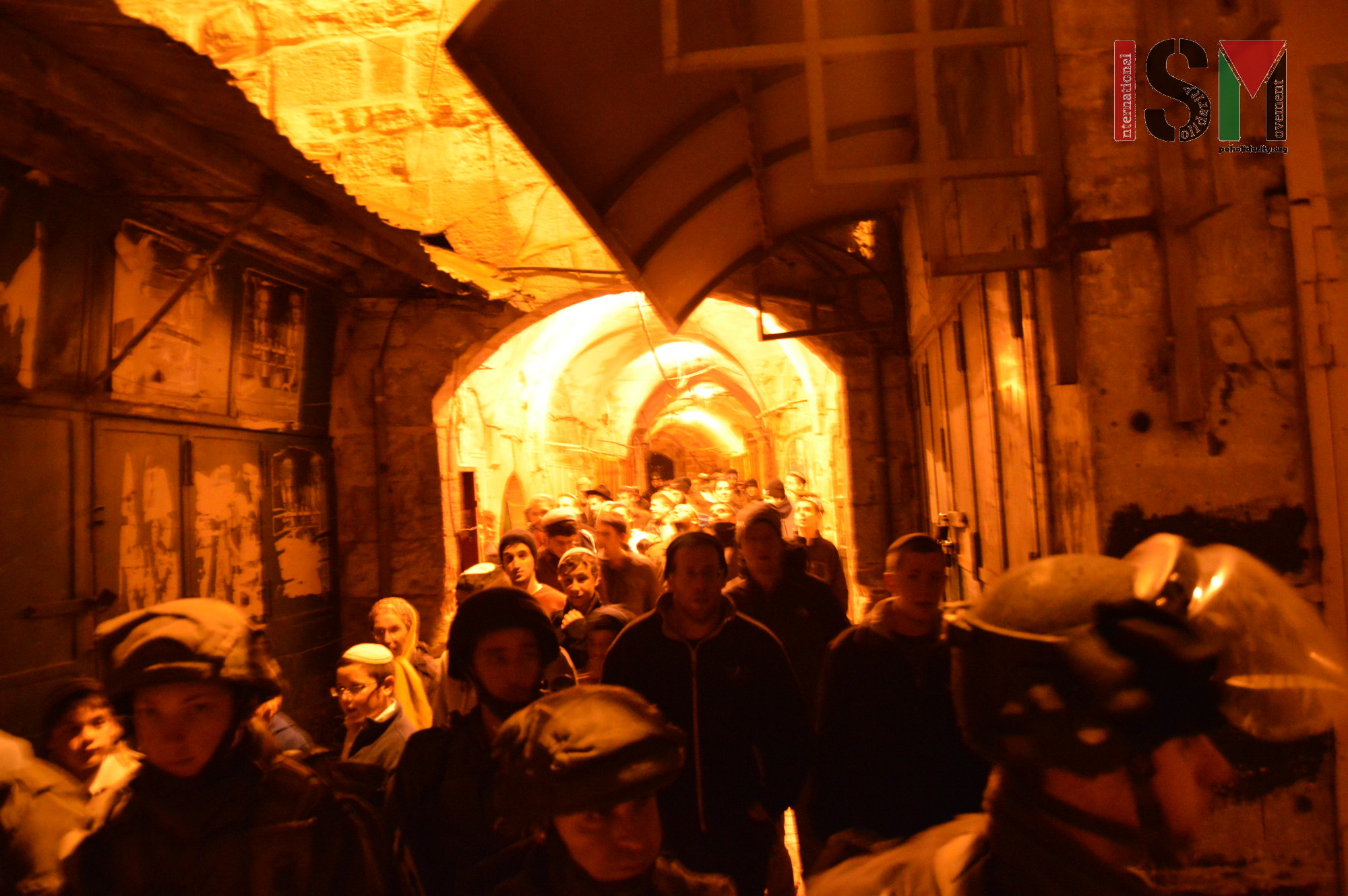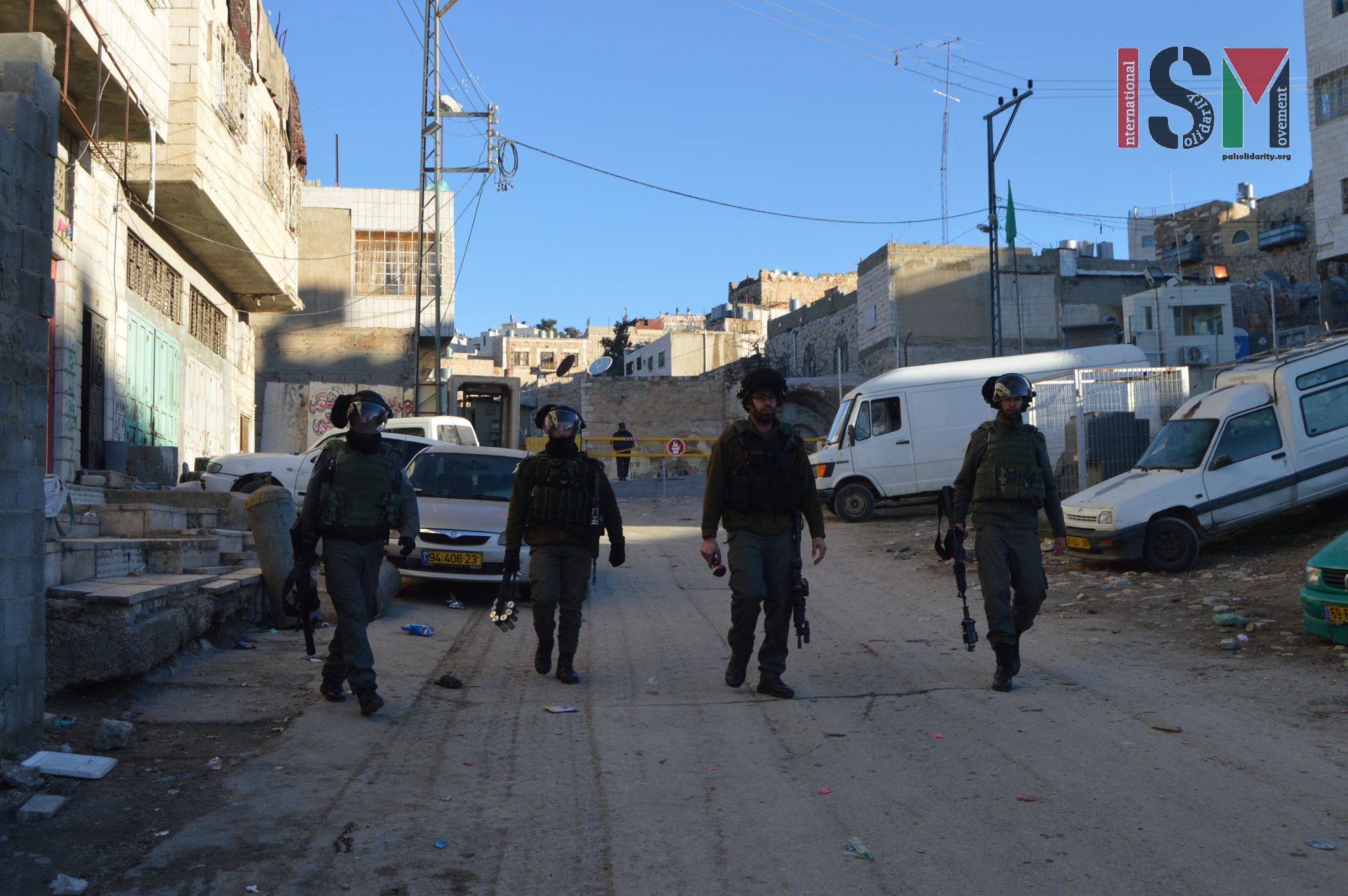Tag: Israeli Army
-
Intimidation through nightly ‘settler-tour’
31st January 2016 | International Solidarity Movement, al-Khalil team | Hebron, occupied Palestine On Saturday, 30th January 2016, large groups of settlers, accompanied by heavily-armed soldiers, entered the Palestinian market at night and took it over for about an hour during night-time in occupied al-Khalil (Hebron). Around 9:30 pm, Israeli settlers from the illegal settlements…
-
Daily violence on the way to school
31st January 2016 | International Solidarity Movement, al-Khalil team | Hebron, occupied Palestine On Sunday, 31st January 2016, Israeli forces fired large amounts of tear gas at school-children on their way to school in occupied al-Khalil (Hebron). In the early morning, as children were walking to their schools located past the Salaymeh checkpoint, three school-boys…
-
Illegal settlers violently take over two Palestinian houses near the Ibrahimi mosque in Hebron
21st January 2016 | International Solidarity Movement, Al-Khalil team | Hebron, occupied Palestine On 21st January 2016 Israeli settlers from the illegal settlements in occupied al-Khalil (Hebron) gathered in Shuhada Street. From here the settlers went into the Old City of Al-Khalil, where they broke into two houses on al-Sahla Street near the Ibrahimi mosque…



